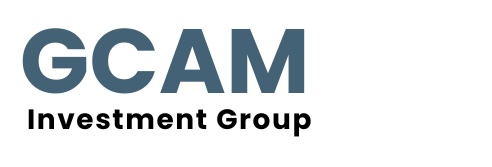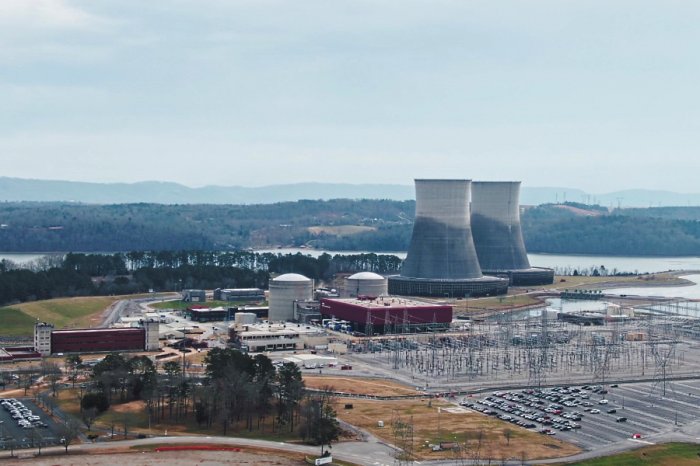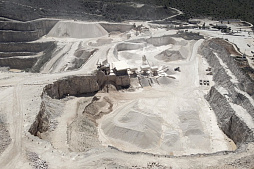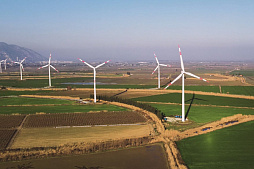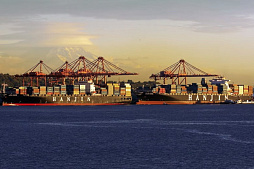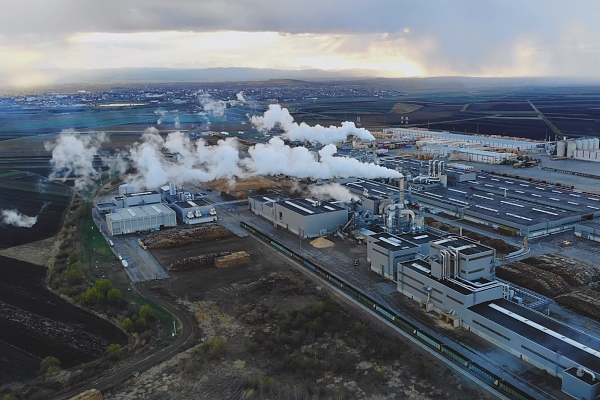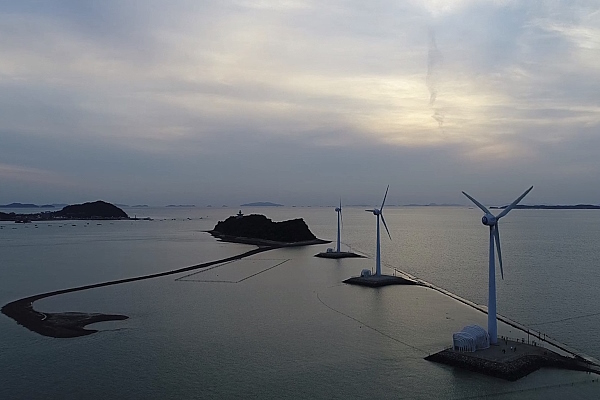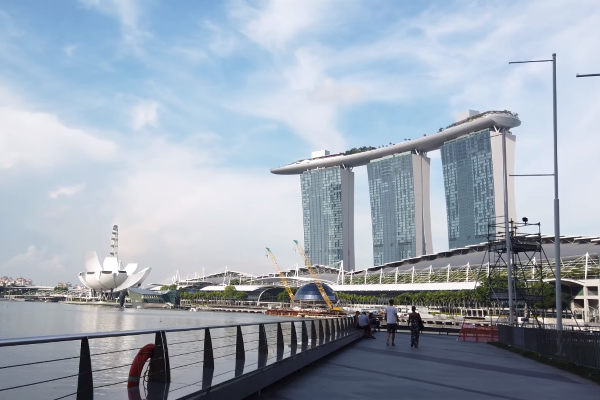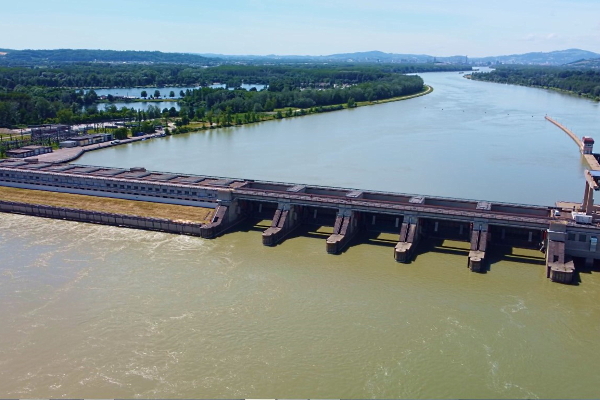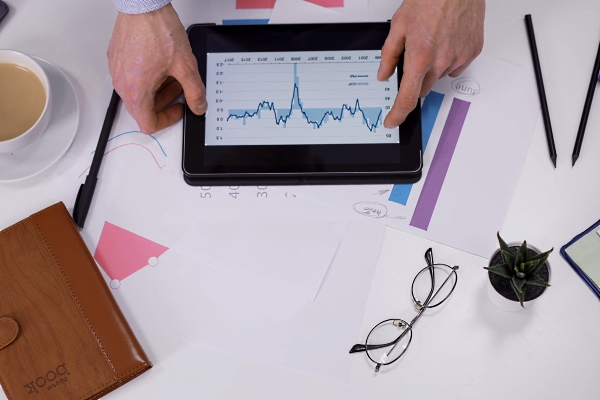After receiving the necessary documents and project presentation, our team will try to review your request as soon as possible, and leading experts will offer the best options for project funding.
It is a favored financing method for capital-intensive projects because it enables risk-sharing among stakeholders.
If you are interested in long-term financing of large projects in Germany or other European countries, please contact our team. GCAM Investment Group extends financial support with a minimal commitment from the project initiator across various industries.
Our funding services cover a wide spectrum of sectors, ensuring your project's financial success.
To initiate the review of your application, kindly furnish us with a comprehensive presentation or description of your investment or business idea. Our team comprises experts and asset managers who meticulously analyze each unique scenario, providing a financial resolution that empowers the Promoter to secure long-term project financing with the most minimal upfront commitment.
Overview of project finance in Germany
Project finance (PF) is a complex financial arrangement used to fund large infrastructure and industrial projects.This method of financing involves creating a separate legal entity, typically a Special Purpose Vehicle (Zweckgesellschaft), to undertake the project. This legal entity is fully responsible for securing debt and equity financing, as well as managing other financial aspects.
Large wind farm projects in Germany are usually financed using a project finance scheme, especially when they are large and expensive. This type of financing is typically used in infrastructure projects and means that financing is arranged independently of the developer's balance sheet and is based on the future cash flow of the project itself.
In project finance schemes in Germany, there are several key types of participants, each playing a distinct role in supporting projects.
The main types of participants are listed in the table below.
| Typical participants | General description |
| Banks | Commercial banks, investment banks, and development banks often provide debt financing for projects. They may serve as arrangers, lenders, underwriters, helping structure and fund the investment project. |
| Equity investors | German equity investors can include private equity firms, infrastructure funds, institutional investors, and project sponsors themselves. They provide the equity capital needed to initiate and develop the project. |
| Government entities | Government agencies at the federal, state, or local level may participate in project finance, particularly for infrastructure or public-private partnership (PPP) projects. They may offer grants, subsidies, or loan guarantees. |
| Multilateral institutions | Multilateral development banks such as the European Investment Bank or the World Bank may provide project financing or guarantees to promote sustainable development and infrastructure in Germany. |
| Export Credit Agencies | Large ECAs, such as Euler Hermes in Germany, offer export credit insurance and financing to support international projects with German involvement. They often help mitigate political and commercial risks for exporters. |
| Contractors and EPC firms | Engineering, Procurement, and Construction (EPC) companies and contractors are involved in project development and execution. They may provide typical turnkey solutions or construction services. |
| Suppliers and manufacturers | Suppliers of equipment, materials, and technology play a crucial role in project finance, particularly in sectors like renewable energy and infrastructure. |
| Law firms | Legal firms specializing in PF and construction law provide legal counsel, draft contracts, and ensure regulatory compliance for all parties involved in the project. |
| Consultants and advisers | Financial and technical advisers provide expertise in project feasibility studies, risk assessments, and financial modeling. They ensure the project viability and success. |
| Rating agencies | Credit rating agencies assess the creditworthiness of project participants and the project itself. Their evaluations influence financing terms and investor confidence. |
| Environmental / social experts | Experts in environmental and social impact assessment ensure projects comply with sustainability standards and regulatory requirements, addressing environmental and social concerns. |
| Financial guarantors | Financial guarantors provide credit enhancement or guarantees for certain investment project obligations, reducing risk for lenders and investors. |
| Insurance companies | Insurance providers offer various types of coverage, including construction insurance, liability insurance, and political risk insurance, to protect against unforeseen events. |
| Community and stakeholders | Local communities and stakeholders may have an indirect role in project finance through public support, approvals, and involvement in the permitting process. |
| Offtakers | Offtakers are entities that purchase the project's output, such as electricity or other goods. Long-term contracts with reliable offtakers can secure project revenue. |
These participants work together in complex project finance arrangements to fund, develop, and operate infrastructure, energy, and industrial projects in Germany.
The composition of participants can vary depending on the nature and scale of the project and the specific industry involved.
Regarding the most important capital sources, Deutsche Bank has played a leading role in the development of project finance in Germany, offering flexible financing solutions for large-scale infrastructure and renewable energy projects. Commerzbank and KfW Bankengruppe are also famous financial institutions involved in project finance schemes across the country.
Deutsche Bank is a prominent global financial institution with a significant role in project finance around the world.
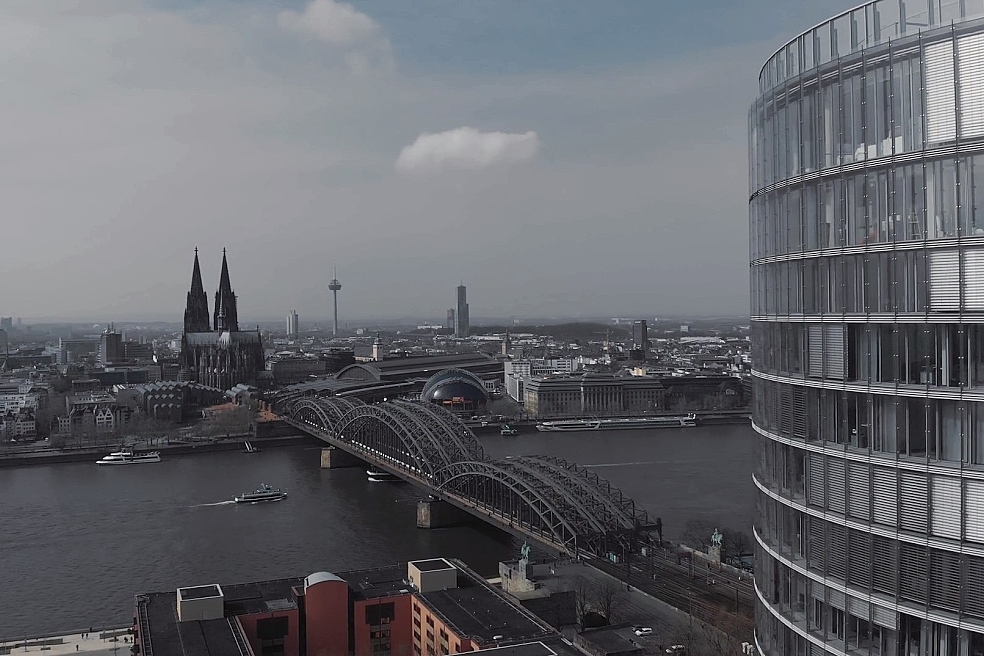
Its involvement in project finance encompasses a wide range of industries and sectors. This Bank has expertise across a wide range of industries, including energy (both renewable and conventional), infrastructure, transportation, real estate, and telecommunications.
KfW, a government-owned development bank, has been instrumental in financing infrastructure projects in Germany. It has supported initiatives related to energy efficiency, transportation, and renewable energy projects (wind farms, solar power plants).
The COVID-19 pandemic affected project finance in Germany, causing delays and disruptions in project timelines due to lockdowns / supply chain disruptions. The events of 2022 greatly impacted German business and changed the fate of many projects, threatening the weak recovery of the German economy from the pandemic.
However, the country has strengthened its focus on green energy and energy independence. As of 2023, Germany is increasing investments in hydrogen projects as part of its efforts to decarbonize industrial sector, such as chemical industry. Energy storage projects, including battery storage and pumped hydro storage, were also gaining attention to enhance grid stability.
The main areas of project finance in Germany
Germany is known for its extensive use of project finance in various sectors, including RES, infrastructure, and real estate. The following are some of the areas where PF is most widely used.Project finance in infrastructure development
Germany has invested heavily in infrastructure development, including highways, railways, and airports.Infrastructure projects often incorporated energy-efficient technologies and sustainable practices. Energy-efficient retrofits and the construction of green buildings were on the rise.
Germany continued to invest in transportation infrastructure, particularly in highways, railways, and urban transit systems. Project finance is mainly directed toward the most expensive and strategically important projects aimed at reducing congestion and improving transportation efficiency.
Green hydrogen investments
Germany has been making huge investments in green hydrogen projects.Green hydrogen, produced using renewable sources, is seen as a key element in the country's efforts to decarbonize sectors like industry and transportation. Several projects and initiatives like Electrolysis Corridor focused on green hydrogen production and distribution have received attention and funding.
Energy storage projects
Technically difficult and capital-intensive energy storage projects, including battery storage and pumped hydro storage, have been gaining prominence in Germany.These projects play a crucial role in stabilizing the grid and managing intermittent renewable energy sources. The expansion of energy storage infrastructure is seen as essential for a reliable and efficient energy transition.
Hybrid renewable energy projects
The country has been a leader in renewable energy development, particularly in wind and solar projects. Key projects include offshore wind farms in the North Sea and Baltic Sea, such as the Gode Wind 1 and Baltic Eagle (scheduled to be put into operation in 2024) projects.Germany has witnessed an increase in hybrid RES projects that combine multiple sources of renewable energy generation, such as wind and solar, at a single location. These investments aim to maximize energy production and grid stability while reducing the overall cost of renewable energy.
Grid modernization and expansion
To accommodate the growing share of renewables, Germany has been investing in grid modernization and expansion projects. Upgrading the grid infrastructure is essential for integrating renewable energy into the power system. This has now become possible thanks to project finance.E-mobility infrastructure
The development of electric vehicle charging infrastructure has been a focus in Germany.Funding and financing have been directed toward expanding the network of EV charging stations to support the transition to electric mobility. In mid-2023, the federal government announced plans to allocate €900 million to develop electric vehicle charging infrastructure. This is because the number of electric vehicles in Germany is expected to reach 15 million by the end of the decade.
Sustainable finance and ESG integration
Relevant Sustainable finance practices, including Environmental, Social, and Governance (ESG) criteria, have become increasingly important in the context project finance development across the Germany. Large financial institutions are integrating ESG considerations into their project financing decisions, and green bonds and sustainable lending have gained traction.Public-Private Partnerships (PPPs)
Public-private partnerships in numerous areas have continued to be a preferred model for financing and delivering infrastructure projects in Germany.These partnerships involve collaboration between government entities and private sector investors to fund and operate infrastructure assets.
Energy efficiency projects
Modern energy efficiency projects have been supported by various financing mechanisms and incentives. These projects aim to reduce electricity and heat consumption in residential buildings, industrial facilities, and transportation, contributing to German overall sustainability goals.These developments reflect Germany's ongoing commitment to its energy transition concept. They also demonstrate the importance of project finance for this largest EU economy, with an emphasis on green and sustainable projects, grid enhancements, and innovative financing models.
Having long-standing business contacts with Germany, we are ready to advise you in detail on the issues of attracting investment loans and other forms of financing for renewable energy projects.

Project finance as a driver of green energy in Germany
Germany's commitment to transitioning to renewable energy sources continued to drive infrastructure investment during last decades.Not least thanks to flexible project finance tools Germany has become a European leader in RES development.
By 2020, renewable energy sources accounted for approximately 46% of the electricity generation. Prominent wind energy projects include the Riffgat offshore wind farm in the North Sea, with an installed capacity of 108 MW.
Large-scale renewable energy projects in Germany often exceed 100 MW in installed capacity.
Financing structures typically involve a combination of debt and equity. In the case of wind farms, equity investors include companies like E.ON Climate & Renewables or Danish Ørsted.
In relation to German energy sector PF activities are governed by a robust legal and regulatory framework that adheres to European Union directives. Contracts are vital in project finance, and parties often rely on Power Purchase Agreements (PPAs), Concession Agreements, and Engineering, Procurement, and Construction (EPC) contracts.
The Renewable Energy Sources Act (Erneuerbare-Energien-Gesetz, EEG) is a key piece of legislation that has encouraged the development of renewables in Germany. The EEG guaranteed feed-in tariffs for renewable energy, creating a stable and predictable investment environment.
Regulatory risks in Germany have been a concern for project finance.
Changes in subsidy schemes and grid connection policies can affect project revenues.
To mitigate risks, many projects enter into long-term PPAs with utilities or corporate buyers, ensuring a steady revenue stream.
Germany has ambitious environmental goals, aiming to phase out nuclear power and significantly reduce greenhouse gas emissions. The last nuclear power plant was shut down in 2023, and coal-fired power plants will be decommissioned by the end of the next decade.
The so-called Energiewende policy (“energy turnaround”) seeks to transition to a more sustainable energy mix, emphasizing renewables. It is obvious that project finance, as the most flexible form of attracting large capital to energy projects, will play an important role in this “turnaround”.
Discover the power of long-term financing solutions with GCAM Investment Group.
We specialize in attracting long-term funding for industrial and energy projects in Germany and across the globe, including expertly crafted project finance schemes. Our team will help you navigate the complex international financial landscape, ensuring your businesses thrive.
